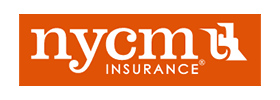Golf Course Insurance in New York
Where Are the Risks?
On the course, possible risks are nearly everywhere. Golf courses vary in size and complexity and may be municipally or privately owned and operated.
Whether your course is 18 holes, nine holes, three par, or a driving range, all courses need a quality risk assessment. Golf carts, snack bars, retail shops, lessons, repair services, and locker rooms are also vulnerable to possible claims. And depending on the climate, operations may be seasonal or conducted year-round, potentially adding even more risk.
Property Exposure
Possible risks for property exposure increase with the number of amenities the business has. If there is a restaurant, pro shop, or repair facility in addition to a clubhouse facility and maintenance shed, exposures will increase with additional ignition sources, including electrical wiring, heating and air conditioning systems, and cooking equipment. Below are areas of your business to consider for possible risks:
- Wiring should be up to date and meet current codes.
- All cooking equipment must be properly controlled and maintained.
- Fire extinguishers should be available throughout the facility and properly tagged.
- Chemicals such as insecticides, pesticides, or herbicides should be stored separately from other operations.
- Machinery and equipment can catch on fire if not properly maintained.
- Gasoline-powered golf carts must have fuel operations separate from other facilities.
- If carts are electrically powered, the charging room must be well ventilated to avoid flammable hydrogen gas.
- If there is a pro shop, protect the premises against unauthorized access after business hours for risk of theft.
Inland Marine Exposure
This exposure is from computers, contractors’ equipment or machinery used to maintain the premises, golf carts, valuable papers and member records, suppliers’ information, and accounts receivable if the club bills members for dues. Use the following tactics to ensure optimal protection against these risks:
- Copies of all data should be kept off-site for easy restoration after a loss.
- Protect your golf carts from rolling down embankments, as well as exposure to wind and collisions.
- Be aware of bailees exposure, which results from your business handling customers’ goods, such as those left for service or repair, or while using locker rooms.
Crime Exposure
Employee dishonesty regarding money and securities is a risk all business owners face. Take the following precautions to ensure your business is protected from possible crimes:
- Background checks should be conducted on all employees handling money.
- Separate duties between persons handling billing, deposits, and disbursements, and reconciling bank statements.
- If cash is accepted at snack bars or for greens fees, be sure to strip the cash drawers regularly and make deposits at least once a day.
- No money should be kept on premises overnight.
- Any large initiation fees or membership charges, with a promise of full or partial reimbursement to the member at a future date, should be held separately in escrow.
- External audits should be conducted regularly.
Premises Liability Exposures
Due to the number of visitors at your course, premises liability exposures can be high. While sports facilities are generally not held liable for injuries incurred while clients are actively participating in sports activities, they can be held liable for injuries that are not part of that sporting activity. Your facility should meet all public and life safety codes to assure visitor safety from injuries caused by slips, falls, flying golf balls, and more. Be aware and prepare for any of the following risky situations:
- Golf carts can overturn or collide with stationary objects.
- Consider requiring customers to sign hold harmless agreements before using the facilities or renting a golf cart.
- If lessons are offered to children, background checks should be conducted on instructors.
- A driving range should be physically separated from the rest of the facility, with barriers to prevent balls from flying into roadways and neighboring houses.
- There must be adequate security to prevent unauthorized entry.
- If tournaments are conducted on premises, additional security may be needed to control crowds.
- Personal injury exposures include allegations of assault, defamation of character, discrimination, false arrest, invasion of privacy, wrongful detention, or wrongful eviction.
Workers' Compensation Exposure
Maintaining the grounds can result in injuries from working with machinery; work on uneven ground; exposure to high heat and humidity; lung, eye, or skin irritations and reactions from chemicals; hearing impairment from noise; and foreign objects in the eye. Restaurant and food service staff also face risks from burns, slips, trips and falls, and injuries from knives and other sharp objects. Make sure you’re up to date and aware of all areas your business could be vulnerable to these exposures:
- Slips and falls, back injuries, hernias, and sprains and strains from lifting or working at awkward positions are common.
- Food preparation operations can result in cuts, scrapes, and burns.
- Limousine drivers can be injured in over-the-road accidents.
- Employees should be trained in dealing with rowdy guests.
- Pros and instructors, caddies, and others who may be involved in related positions will have the potential for slips, falls, strains, sprains, and being hit by errant golf balls or equipment.
Products Liability Exposure
Products liability exposure may come from cooking and eating facilities, or a pro shop that sells golf equipment or provides repair services. Be sure to:
- Train employees on the proper handling of consumables to prevent foreign objects in food, food poisoning, or the spread of transmissible diseases.
Keeping Your Business Safe
While every golf course and country club is different and comes with its own unique set of risks and exposures, we’ve put together a list of the basic coverages club owners and managers should discuss with their insurance broker to ensure they’re protected:
- Building
- Business Personal Property
- Business Income and Extra Expense
- Accounts Receivable
- Bailees
- Computers
- Contractors’ Equipment
- Cyber Liability
- Golf Carts
- Valuable Papers and Records
- Employee Dishonesty, Money, and Securities
- General Liability
- Employee Benefits
- Environmental Impairment
- Umbrella, Hired, and Non-Ownership Auto
- Workers’ Compensation
While these coverages may not apply to all club locations and operations, it’s worth discussing and considering these additional options with your broker:
- Earthquake
- Equipment Breakdown
- Flood
- Spoilage
- Employment-Related Practices
- Liquor Liability
- Business Automobile Liability and Physical Damage
- Garagekeepers
- Stop Gap Liability
- Unmanned Aerial Vehicles (UAV) (Drones)



















